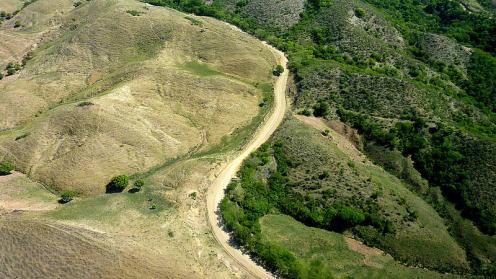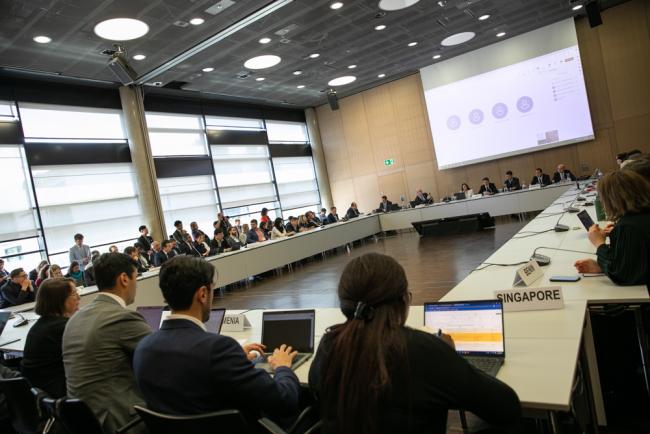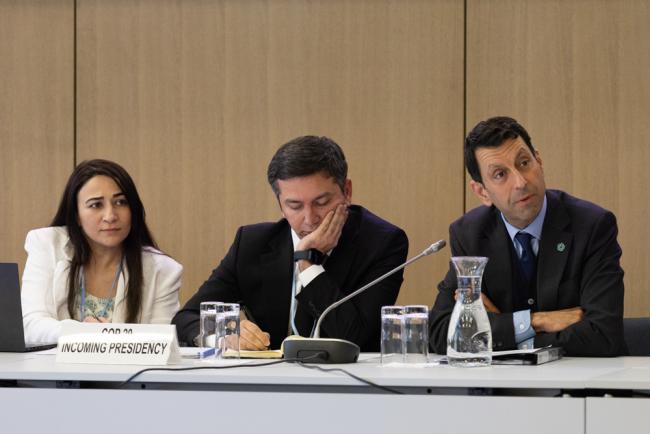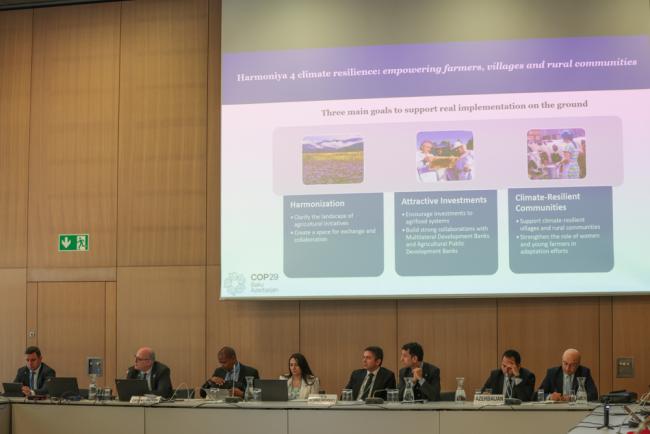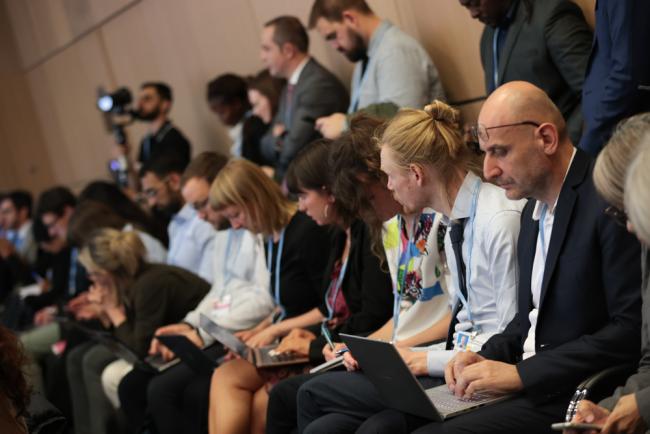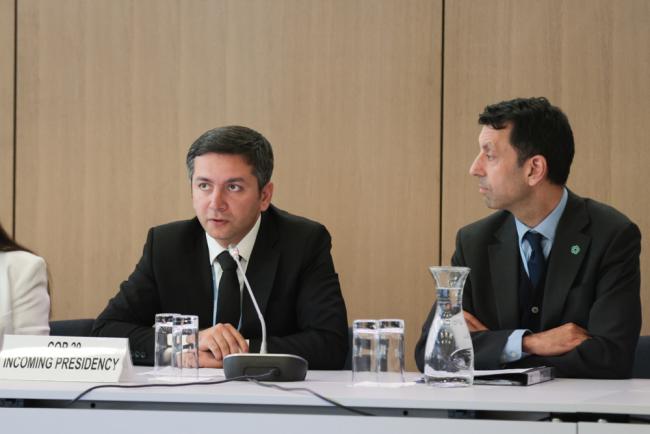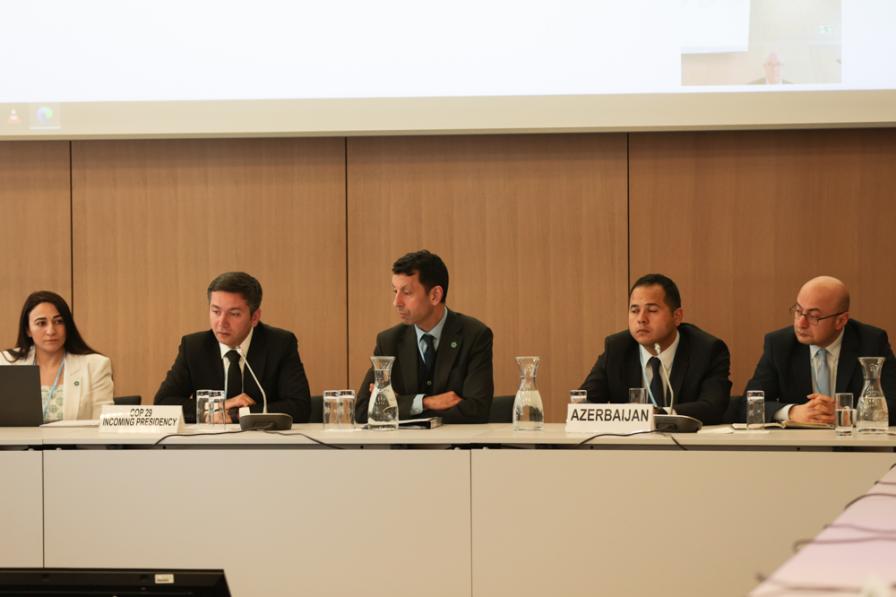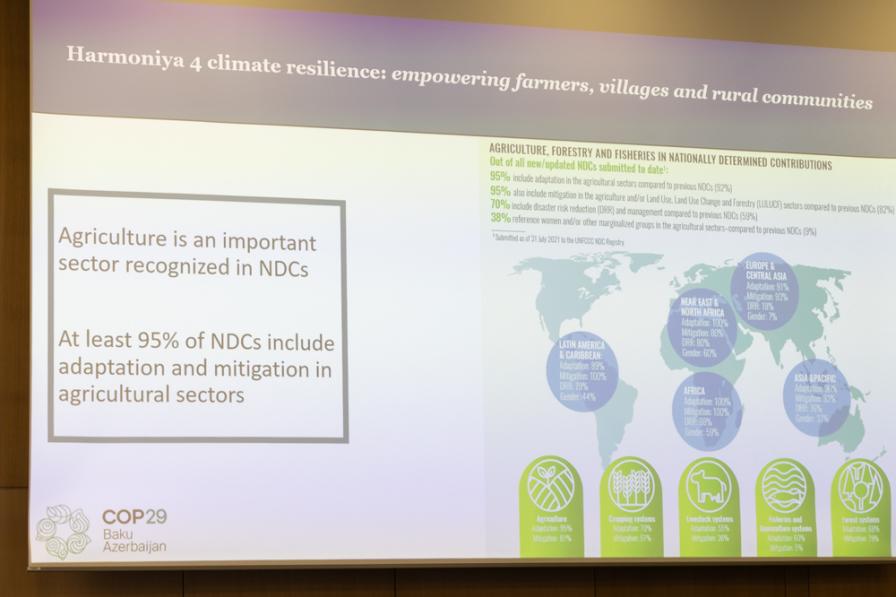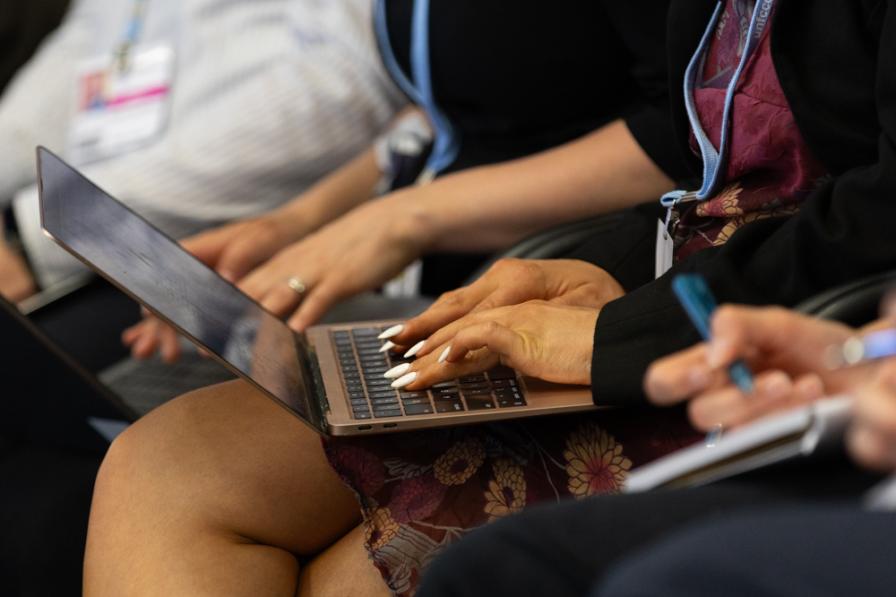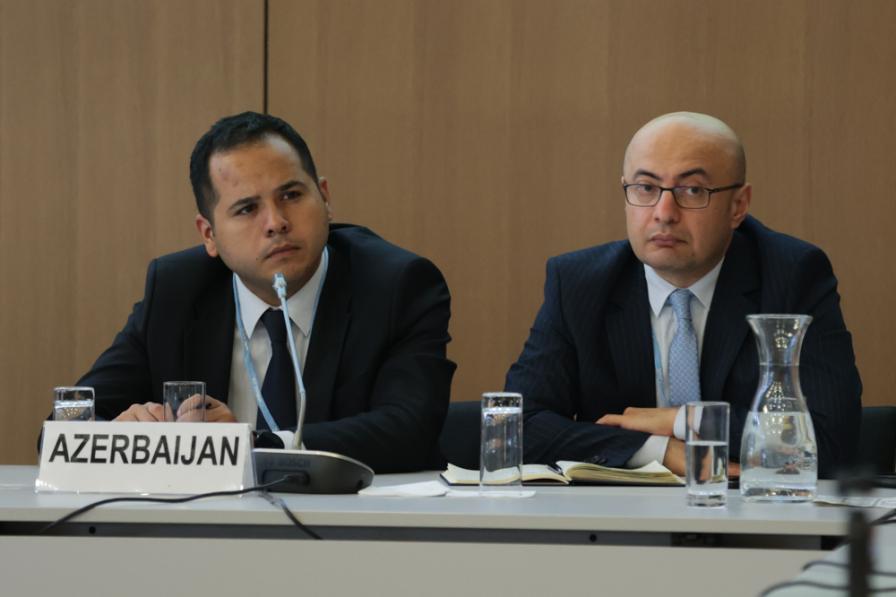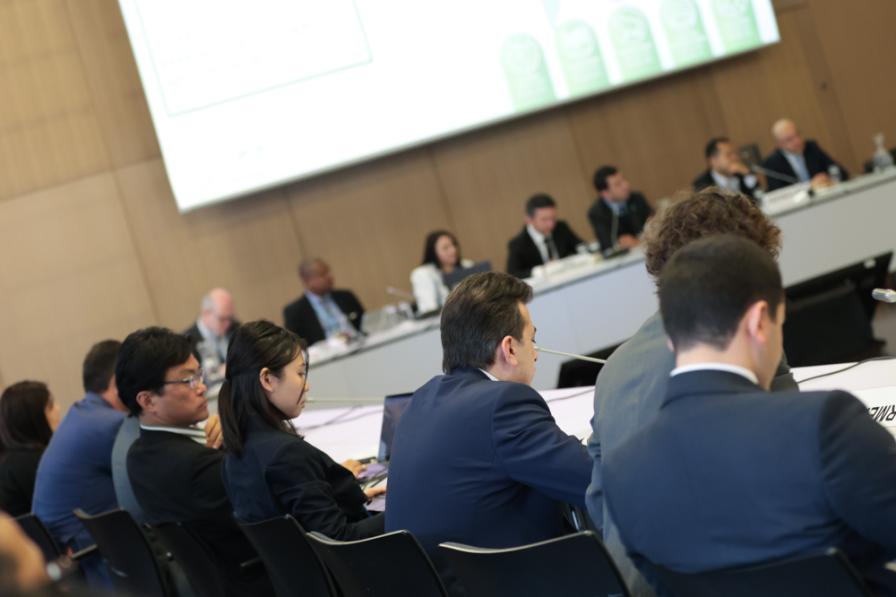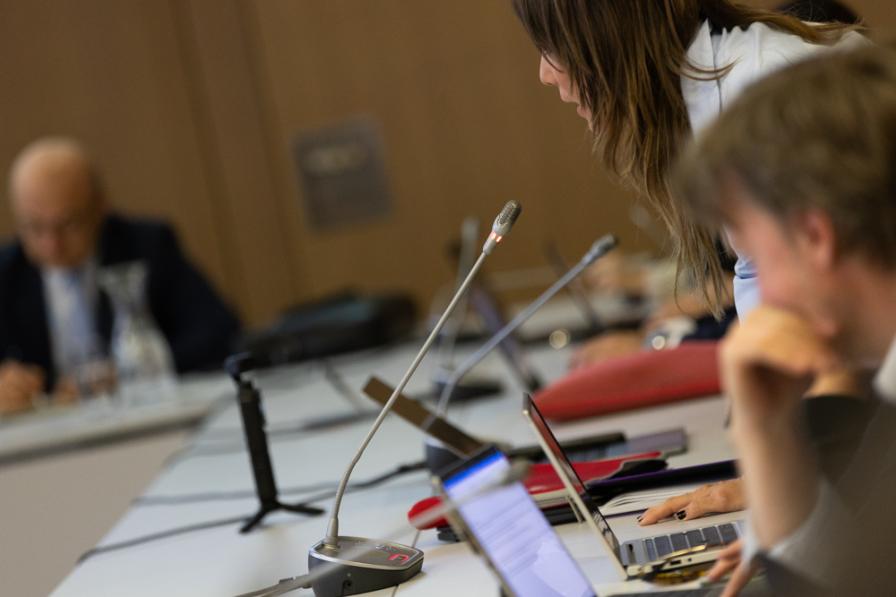About
This event introduced participants to the Harmoniya Initiative, which will serve as a hub for work on agrifood systems during the 29th session of the Conference of the Parties (COP 29) to the UN Framework Convention on Climate Change (UNFCCC). The Harmoniya Initiative is a joint project of the COP 29 Presidency and the UN Food and Agriculture Organization (FAO).
Harmoniya 4 Climate Resilience: Empowering Farmers, Villages, and Rural Communities
As the impacts of climate change on agriculture and food and water security become increasingly visible, initiatives, coalitions, networks, and partnerships to address these challenges are growing rapidly. This joint COP 29 and UN Food and Agriculture Organization (FAO) event introduced participants to the Harmoniya Initiative, which will serve as an aggregator during the 29th session of the Conference of the Parties (COP 29) to the UN Framework Convention on Climate Change (UNFCCC). The Initiative will facilitate the sharing of experiences and identification of synergies and gaps in work to achieve transformation of agrifood systems.
Kaveh Zahedi, Director, Office of Climate Change, Biodiversity and Environment, UN Food and Agriculture Organization (FAO), moderated the event. Zahedi stated that the event would introduce the COP 29 Presidency and its mission to empower farmers, villages, and rural communities, as well as solicit stakeholders’ feedback on the objectives of this new initiative.
Yalchin Rafiyev, COP 29 Lead Negotiator, Deputy Ministry of Foreign Affairs of the Republic of Azerbaijan, underscored the need to move beyond dialogue and deliver “concrete solutions that bring about real change on the ground.” Emphasizing that sustainable agriculture practices enable climate adaptation and are essential in achieving the Sustainable Development Goals, Rafiyev said the Harmoniya Initiative will amplify stakeholders’ impact in transforming agrifood systems by turning discussions into tangible actions. He highlighted the importance of: harmonizing agricultural initiatives to bring about concrete solutions; enhancing climate finance; and focusing on farmers.
Noting that 95% of Nationally Determined Contributions include adaptation and mitigation in the agricultural sectors, Martial Bernoux, Senior Natural Resources Officer, Office of Climate Change, Biodiversity and Environment, FAO, said farmers are not receiving enough attention despite being the first to be impacted by climate change. He cited the “clear need” for coherence, alignment, and experience sharing to drive transformation. He underscored the importance of: harmonization exchange and collaboration during COP 29; encouraging investment in agrifood systems, including by building strong collaborations with multilateral development banks and agricultural public development banks; and strengthening the role of women and young farmers in adaptation efforts.
Motsomi Maletjane, Team Leader, LEG&NAP Unit, UNFCCC Secretariat, lauded the COP 29 Presidency’s initiative, noting that agriculture, food systems, and water are frequently identified by countries as priority areas for action on climate change. Highlighting the need to transform the way we produce and consume food to ensure we are contributing more than we are extracting from the environment, Maletjane highlighted the interconnectedness of these issues and called for finding ways to bring together different initiatives to scale up action.
Zahedi noted that food and agriculture are now appearing in many different negotiation streams and invited participants to share their thoughts on the potential outcomes of the Initiative.
During the discussion, farmers groups and parties welcomed the centrality of farmers and rural development. Many participants expressed appreciation for the Initiative. One welcomed the focus on rural communities, women, and small-scale farmers. Several expressed appreciation for the Initiative’s focus on farmers. One highlighted that change “on the ground” requires empowering farmers, including by ensuring their direct access to investments and funding. A stakeholder from civil society called for pledges for direct financing. Two participants highlighted the importance of engaging farmers in the policymaking process. One encouraged the COP 29 Presidency to give speaking opportunities to farmers in events related to agriculture and food systems.
One participant expressed the importance of the food system approach taken in the previous COP. Another cited the importance of including the private sector in discussions, noting in particular the reporting challenges faced by many in the dairy industry. One participant asked for more space to be created for civil society during COP 29.
Rafiyev clarified that the Initiative will look at food systems as a whole, seek to build the capacity of farmers, and consider the accessibility of investments and funds. He noted that one of the thematic days of COP 29 will focus on food and agriculture. He further noted that the COP 29 Presidency wants to create an enabling environment for farmers and will seek to engage as much as possible with all stakeholders, including those from civil society.
One delegate also mentioned the need to have harmony between adaptation and mitigation. A representative from the World Bank cited a new report that finds agrifood systems can cut carbon emissions cost effectively while continuing to feed the world, and lauded the positioning of agrifood systems at the forefront of climate action.
Many online participants also followed the discussions. A few online attendees highlighted that Harmoniya could integrate and leverage the traditional knowledge and practices of farmers, especially those of rural and Indigenous Peoples communities.
In concluding remarks, COP 29 Lead Negotiator Rafiyev expressed appreciation for stakeholders’ encouragement to continue this work. The Harmoniya Initiative will be launched during COP 29.
Contact:
Gafgaz Adigozalov | gafgaz.adigozalov@cop29.az
Martial Bernoux | martial.bernoux@fao.org
To receive free coverage of global environmental events delivered to your inbox, subscribe to the ENB Update newsletter.
All ENB photos are free to use with attribution. For this side event, please use: Photo by IISD/ENB | Kiara Worth
